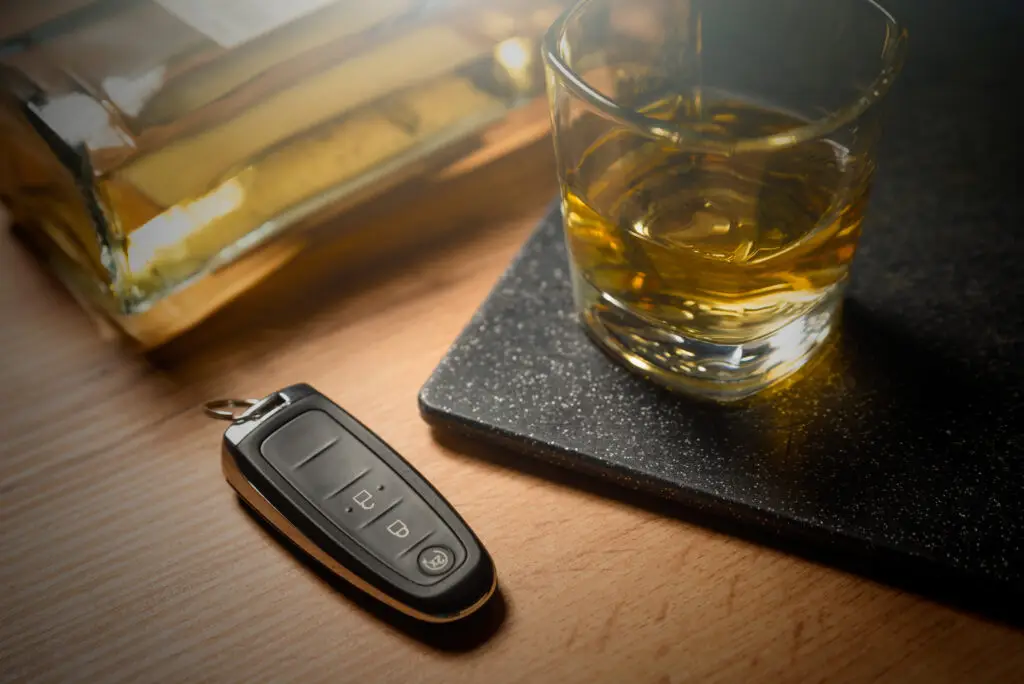Beating a DUI charge is no walk in the park. For many drivers, it begins as a terrifying moment—blue and red lights flashing in the rearview mirror—followed by field sobriety tests, breathalyzers, and a sinking realization that this situation could spiral fast. Suddenly, what started as a night out becomes a long legal journey. And in that moment, the most critical question arises: do you need a lawyer for beating a DUI?
Let’s be clear from the start—yes, having an attorney can make a world of difference. But why? In this guide, we’ll break it down in human terms, not legal jargon. You’ll learn how DUI cases are built, what the prosecution needs to prove, and the defenses that might work for you. More importantly, we’ll explore how a smart legal strategy often means the difference between conviction and walking away with your record intact.
This isn’t about shortcuts. It’s about understanding the legal chessboard you’re on—and knowing how to play it right. So if you’re serious about beating a DUI, stay with us as we unpack exactly what it takes.

What Does Beating a DUI Actually Mean?
When people talk about beating a DUI, they usually mean avoiding a conviction altogether. That might involve getting the case dismissed, reduced to a lesser charge like reckless driving, or being found not guilty at trial. But to reach any of those outcomes, you’ll need to understand what you’re up against.
The prosecution in a DUI case must prove three things:
- You were driving or in actual physical control of a vehicle
- You were under the influence of alcohol or drugs
- You were impaired to the extent that it affected your ability to drive safely—or your BAC was over the legal limit (typically 0.08%)
If they can’t prove all three beyond a reasonable doubt, you have a shot at beating the DUI.
But let’s not sugarcoat it. Prosecutors are trained, experienced, and motivated to win convictions. That’s why trying to fight it alone is risky, especially if you’re unfamiliar with courtroom procedures or evidentiary rules.
Real-Life Scenario: Carlos’ DUI Nightmare
Let’s bring it to life with a story. Carlos, a 29-year-old teacher, had two beers after work at a colleague’s retirement party. He felt fine and drove home. On the way, he was stopped for a broken taillight. The officer claimed to smell alcohol and asked Carlos to step out of the vehicle. Carlos complied. He took a breath test, which showed a BAC of 0.09%.
Carlos was arrested and charged with DUI. Devastated, he considered pleading guilty just to get it over with. But his friend advised him to talk to a DUI lawyer first. Good thing he did.
His attorney reviewed the case and noticed problems. The traffic stop was questionable. The breathalyzer machine hadn’t been calibrated in weeks. The officer’s dashcam contradicted parts of the report. Based on these facts, the lawyer filed motions to suppress evidence. Eventually, the prosecutor agreed to reduce the DUI to a non-criminal infraction.
That, in essence, is beating a DUI—not because Carlos had a loophole, but because his lawyer knew how to challenge weak evidence.
Common Misconceptions About Beating a DUI
Many drivers misunderstand what beating a DUI involves. They assume they can explain their side to the judge, claim they weren’t “that drunk,” or argue that the officer was rude. But none of these things, by themselves, are valid legal defenses.
Let’s bust a few myths:
“If I Cooperate, They’ll Let Me Off Easy”
Cooperation may help in some cases, but it doesn’t guarantee leniency. In fact, statements you make at the time of arrest can be used against you.
“I Passed the Field Sobriety Test, So I’m Fine”
Field sobriety tests are subjective and often used to justify arrest, not to prove sobriety. Even if you think you did well, the officer’s report might say otherwise.
:max_bytes(150000):strip_icc()/dui5-569fe6ab3df78cafda9eff68.jpg)
“It’s My First Offense—They’ll Go Easy on Me”
First-time offenders sometimes get reduced sentences, but not always. A conviction still means fines, license suspension, and possibly jail time.
If your goal is truly beating a DUI, you need more than good behavior or assumptions. You need a strong legal game plan.
The Importance of Hiring a DUI Attorney
So, back to the core question: do you need a lawyer for beating a DUI? Absolutely. Here’s why.
Knowledge of DUI Law
DUI laws are complex and vary by state. A qualified attorney knows the specifics of chemical testing, legal thresholds, and procedural rules that can make or break a case.
Ability to Challenge Evidence
Lawyers can question whether the breathalyzer was properly calibrated, whether the arresting officer followed correct protocol, or whether the stop itself was legal. Any flaw in these areas can open the door to dismissal or reduction.
Negotiation Skills
Prosecutors are more likely to negotiate with a seasoned attorney than with an unrepresented defendant. Lawyers can often work out deals that are unavailable to people representing themselves.
Courtroom Experience
Trials are high-stakes, high-pressure events. A DUI lawyer knows how to cross-examine witnesses, present evidence, and make legal arguments that resonate with a judge or jury.
When you’re committed to beating a DUI, a lawyer isn’t a luxury—it’s your best shot.
How DUI Charges Are Investigated and Prosecuted
Let’s take a closer look at howDUI charges unfold. Understanding this process helps you identify where mistakes can be challenged.
Step 1: The Traffic Stop
It usually begins with a routine stop. Maybe a broken taillight. Maybe a wide turn. If the officer suspects impairment, they’ll proceed with a DUI investigation.
Step 2: Field Sobriety Tests
These tests are designed to assess coordination and judgment. However, they’re highly subjective and often influenced by weather, fatigue, or even anxiety.
Step 3: Breath or Blood Test
This is the most scientific part of a DUI case—but even science can be flawed. Machines require maintenance. Blood draws require proper chain of custody. Any errors can affect results.
Step 4: Arrest and Booking
Once arrested, your statements and behavior are documented. Even silence or hesitation can be used against you later.
Step 5: Charging and Court Proceedings
The prosecution assembles the evidence and files charges. This is where having a lawyer becomes critical. They’ll analyze the case, file pretrial motions, and begin negotiations or prepare for trial.
Each step is a potential opportunity to undermine the case. That’s the foundation for beating a DUI—knowing where the weaknesses lie.
Strategies That Work for Beating a DUI
Your defense strategy will depend on the facts of your case. Here are some of the most effective methods lawyers use:
Challenging the Traffic Stop
If the officer lacked reasonable suspicion to pull you over, everything that followed might be inadmissible in court.
Suppressing Evidence
If the breathalyzer was faulty or the officer skipped required procedures, your lawyer can file a motion to suppress the evidence.
Contesting the BAC Results
Sometimes, BAC results are inaccurate due to medical conditions, device errors, or environmental factors. Your lawyer might hire an expert to testify.
Questioning Field Sobriety Test Validity
These tests aren’t as reliable as people think. Your attorney can argue that your poor performance had nothing to do with intoxication.
Negotiating a Lesser Charge
If the case isn’t strong but not weak enough for dismissal, your lawyer might negotiate a plea to reckless driving or a deferred sentence.
Going to Trial
If all else fails and your case has merit, taking it to trial might be your best bet. An experienced DUI attorney knows how to build a compelling case that casts doubt on the prosecution’s version.
Using these strategies wisely is the key to beating a DUI, and it’s nearly impossible to pull them off without legal expertise.

The Costs of Not Hiring a Lawyer
You might think hiring a DUI attorney is expensive. But the cost of not hiring one can be much higher.
- A DUI conviction may include fines up to $2,500 or more
- You could lose your license for months or even years
- Car insurance premiums can double or triple
- You may face jail time—even on a first offense
- A criminal record can impact employment, housing, and travel
When you add it all up, the long-term costs of going it alone are far greater than attorney fees. If you’re serious about beating a DUI, you can’t afford not to hire professional help.
What to Look For in a DUI Lawyer
Not all attorneys are created equal. If you want the best chance at beating a DUI, here’s what to look for:
- Specialization in DUI defense
- Proven track record of reduced charges or case dismissals
- Experience with the local courts and judges
- Confidence without overpromising results
- Transparent fees and clear communication

Take the time to consult with a few lawyers. Most offer free consultations. Ask questions, review past cases, and trust your gut.
Final Thoughts: Be Smart, Be Strategic
Let’s wrap this up. Beating a DUI isn’t about luck. It’s about strategy, timing, and making the right choices from day one. The legal system is not designed for amateurs, and DUI cases involve far more complexity than most people realize.
From the moment you’re pulled over, every word, action, and decision counts. Hiring the right lawyer could be the one thing that turns a damaging charge into a second chance.
So, do you need a lawyer for beating a DUI? Here’s the answer again—absolutely. Because your future is worth protecting.


